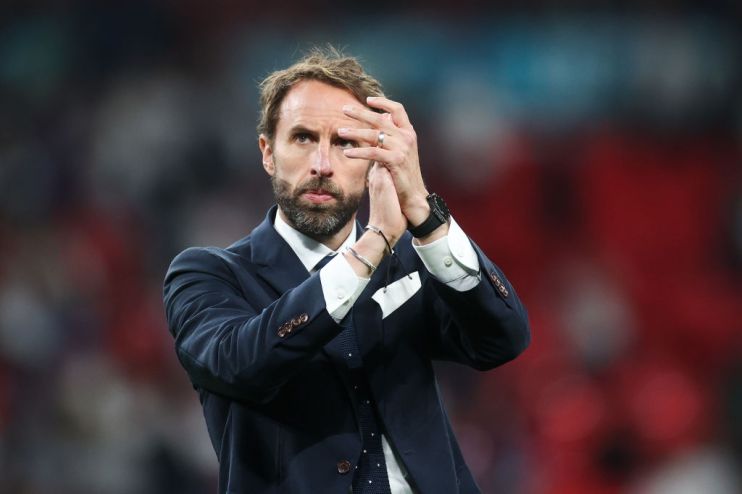They may not have won Euro 2020 but Gareth Southgate and his England colleagues pulled off one of their most important victories long ago

England may not have ended 55 years of hurt but reaching the Euro 2020 final was a further step in the right direction.
There are many things you can attribute Gareth Southgate’s achievements as England manager to, from a willingness to change formation and a winning team, to putting his faith in youth or even playing a right-back on the left.
Yet the real roots of his positive World Cup and European Championship campaigns took hold a little over three years ago when Southgate scored his most significant victory. He won over the English football media.
The relationship between the national team and its media has not exactly been smooth over the years. Who can forget Graham Taylor’s depiction as a turnip, Steve McClaren being dubbed the “Wally with the Brolly” and the WAGS of Baden Baden commanding the front pages?
Even when things were good on the pitch, relations with the media had effectively broken down off it before the tournaments had even started at both Italia ’90 and Euro 96.
One of the arguments for Sam Allardyce’s hire was his supposed good relations with the press. That didn’t end well either.
How Southgate and England learned from the NFL
So, to Southgate, seen at the time to many as a short-term solution, but a man who together with the Football Association has arguably won England’s biggest victory. The media are onside.
You will know of his excellent Players’ Tribune piece and his unequivocal support of his players taking the knee, but the game-changing moment took place ahead of Russia 2018 with a simple media day.
The FA took a page out of the NFL’s playbook and invited the media to the team’s St George’s Park base, where all 23 squad members sat behind individual desks. Southgate is said to have been impressed by it when attending a Super Bowl.
Each spent 45 minutes openly talking with writers, broadcasters and podcasters. PRs, agents, and advisors were conspicuous by their absence.
It was probably the most important 45 minutes of Southgate’s regime as players and media discovered a new-found mutual respect.
The squad of modem multi-millionaires had been seen as cosseted while the players treated the media as a necessary evil. Numerous ex-internationals had spoken of how their performances had been affected by fear of criticism.
This simple media event changed everything. It was probably best summed up at the time by the Mail’s Oliver Holt on approaching Ashley Young, “I’ve never really liked Young, mainly because I’ve never taken the trouble to get to know him…Young could barely have been more different to what I was expecting.”
Positioning the players as human beings first was a masterstroke of communications by Southgate and the FA.
Southgate proving the perfect politician
Three years on and the relationship remains strong. The FA should be praised for their continuing attempts to court better coverage, as should the media for embracing the new approach and giving Southgate’s young side the chance to play with a little less pressure than in the past.
Southgate himself must also take credit. He sticks to his messages unerringly.
Only half an hour before kick-off last night he was pitch-side speaking of players and fans “from all communities”. Everyone is embraced. And the media has been more than happy to be part of it.
The impact on the pitch is clear to see. The playing style isn’t always pretty, but it works and there have been fewer demands for players to be dropped, systems to be changed and to display the “passion” that has wrongly been seen as the key to success in English football for so long.
The England manager has been the perfect politician, bringing a nation together, ably supported by Raheem Sterling, Marcus Rashford and the FA’s comms team.
Perhaps the squad and the media have even become too close? I’m sure Southgate won’t have been pleased that the England team leaked ahead of every Euro 2020 game. Then again, if they keep on going forward, who cares?
Matthew Fletcher-Jones is a Director at Cake, a sports, culture and entertainment agency.